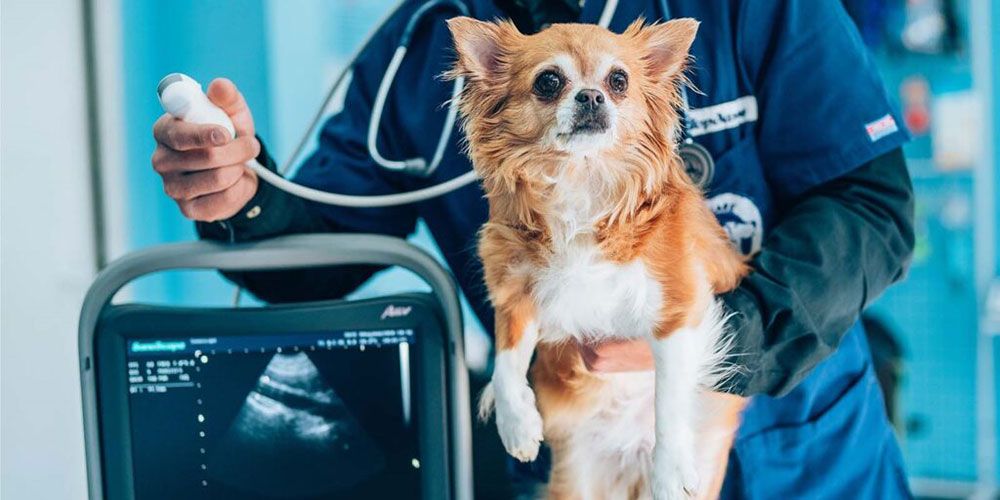Veterinary medicine is filled with more specialty areas than you may realize. Just as humans have doctors who maintain the expertise needed to monitor the central nervous system, the heart, and other vital bodily functions, animals need veterinarians who can do the same.
Veterinary radiologists specialize in the field of diagnostic imaging, assisting animals’ primary practitioners in managing and maintaining their care. The diagnostic information provided by these specialists can be crucial for accurate patient treatment.
If you’re interested in pursuing a career in a highly respected sector of veterinary medicine that will enable you to play a life-saving role for many animals, read on to learn more about veterinary radiology.
What is veterinary radiology?
Many general veterinary practitioners routinely take x-rays or offer ultrasonography in their day-to-day practice, but board-certified specialists are often called upon for additional consultation, especially when reading the results. The signs of disease in diagnostic images can be quite subtle, requiring significant expertise to spot and interpret them adequately.
There are six core types of diagnostic imaging within the field of veterinary radiology:
- Radiographs (also referred to as x-rays) are used to assess issues like broken bones, arthritis, foreign items in the digestive tract, and other common concerns.
- Ultrasound is better for showing details of soft tissues and organs, making this a go-to tool if a practitioner suspects a heart problem because, while an x-ray will show the animal’s heart, ultrasound can more effectively depict the presence and type of heart disease.
- Magnetic resonance imaging (MRI) is useful for detecting spinal or brain injuries, and thus may be recommended for animals experiencing mobility issues.
- Computed tomography (CT) imaging also shows more detailed images of tissues and is typically used to focus on complex areas like the chest.
- Nuclear medicine involves the administration of radiopharmaceuticals to evaluate critical organ functions, such as the excretory function of the kidneys, the iodine-concentrating ability of the thyroid, or the blood flow to the heart muscle.
- Radiation therapy involves the medical use of ionizing radiation as a part of cancer treatment to control malignant cells; this may be used as a primary therapy or it may be combined with surgery, chemotherapy, and/or hormone therapy.
What does a veterinary radiologist do?
Those working within this critical specialization will practice in tandem with an animal’s primary care team. According to the American College of Veterinary Radiology (ACVR), veterinary radiologists use the aforementioned methods of diagnostic imaging to do the following:
- Correlate medical image findings with other examinations and tests
- Recommend further examinations or treatments
- Consult with the referring veterinarian
Specific duties will vary depending on the particular facility, but it’s common for some veterinary radiologists to perform the diagnostic imaging, while others will focus on interpreting and advising on the images provided to them. These specialists are also trained to perform interventional diagnostic procedures such as ultrasound-guided biopsies.
How to become a veterinary radiologist
After obtaining an undergraduate degree, all veterinary radiologist hopefuls will need to complete a Doctor of Veterinary Medicine (DVM) program. To eventually become board-certified, candidates will then need to complete one year of internship or private practice experience followed by a rigorous three- or four-year radiology residency program.
Residency is where these specialists are trained in all the diagnostic imaging modalities they’ll eventually use on the job. During and after residency, candidates must pass a two-part exam to be recognized as a board-certified ACVR radiologist.
Build a career as a veterinary radiologist
Now that you know a bit more about what you can expect from a career as a veterinary radiologist, you’ll need to lay a solid foundation for success. That begins by earning your DVM from a well-respected veterinary school.
You can learn more about what you should be looking for when choosing a school in our article “6 Things the Top Veterinary Schools Have in Common.”

